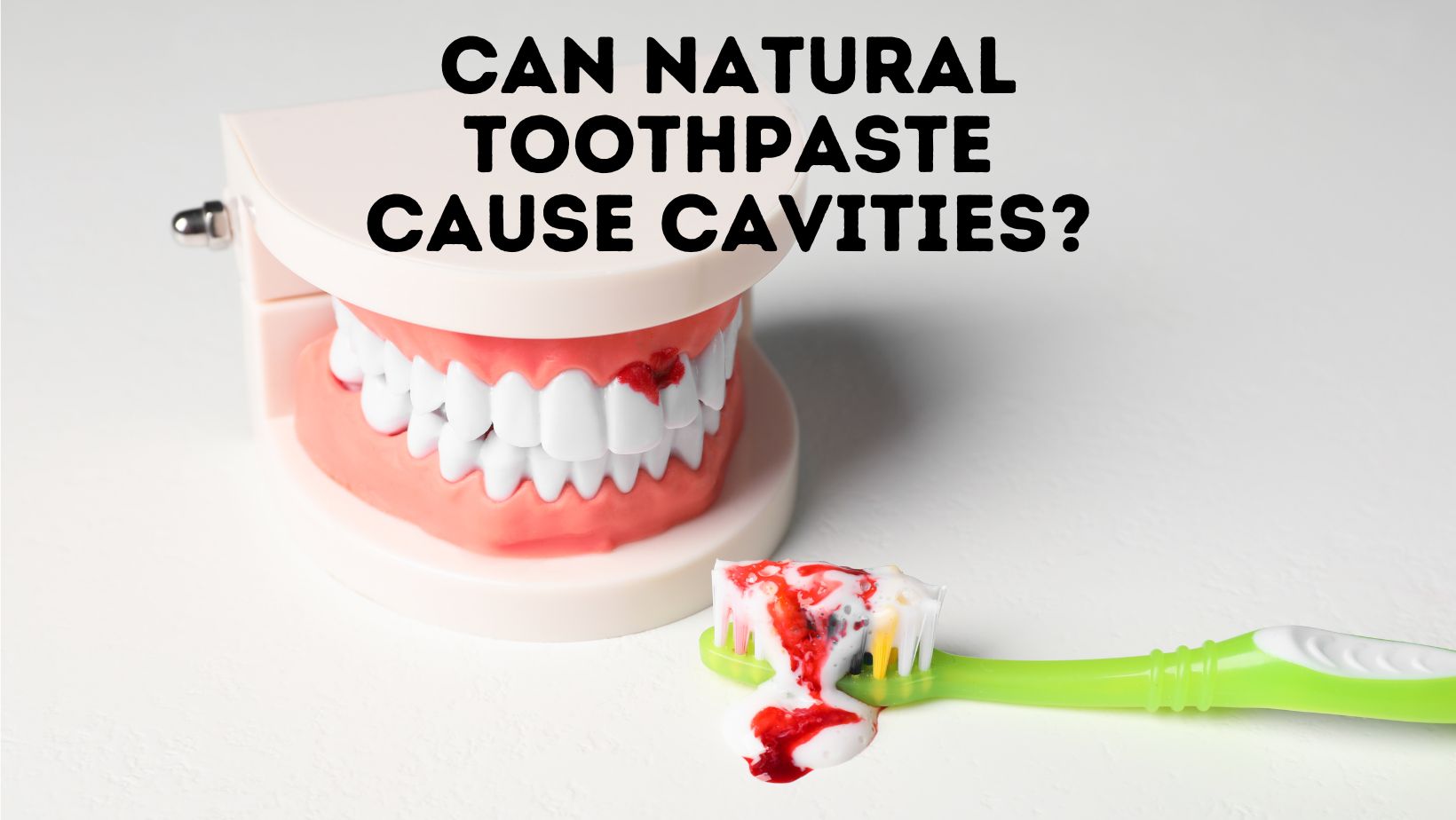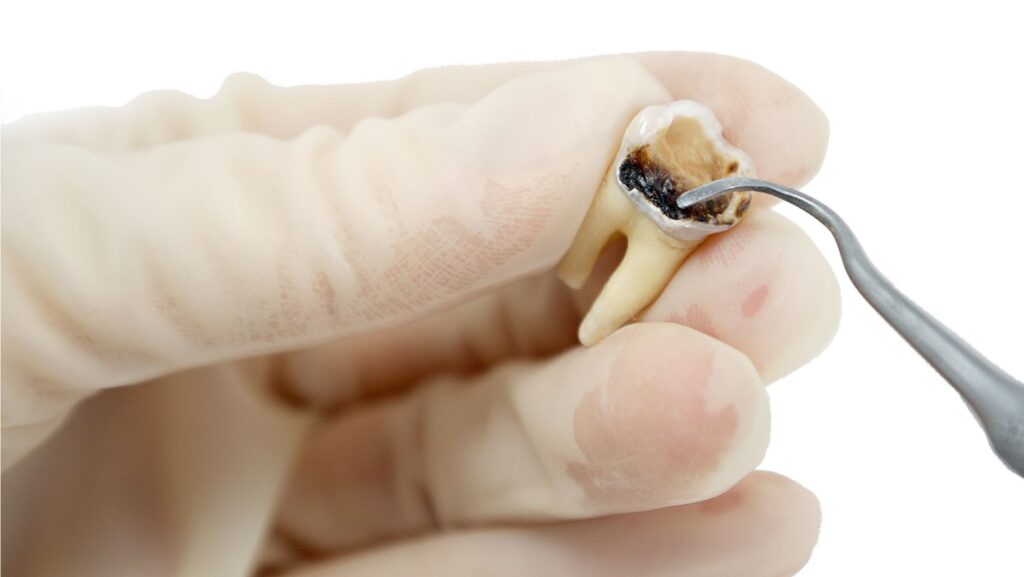
Individuals turn to conventional oral care products as oral health and natural alternatives gain more attention. The current time is more about picking up natural, organic toothpaste instead of traditional ones. But are Natural toothpaste alternatives really helpful? Specifically, Can Natural Toothpaste Cause or Cure Dental Cavities? Come, let’s find out.
Initially, toothpaste contained all-natural ingredients or a standalone ingredient. As science worked on toothpaste formulation, we came across a few products in the market. These were the traditional toothpaste formulas with natural and active/ chemical ingredients that aid in improving dental health.
However, since traditional toothpaste formulas also contained artificial additives, the trend of all-natural toothpaste came into the picture again. Natural, organic toothpaste is now becoming a popular choice amongst health-conscious individuals. However, a lingering concern remains: Is natural toothpaste capable enough to maintain cavity-free teeth?
Table of Contents
Are Natural Toothpaste Effective?
Natural toothpaste options are gaining popularity for their perceived benefits over conventional toothpaste. Being natural, their formulation usually does not contain sodium lauryl sulfate (SLS), artificial sweeteners, flavors, or other synthetic ingredients. Instead, natural toothpaste formulas rely on herbal extracts, baking soda, essential oils, and other natural ingredients. Natural toothpaste is ideal for a potentially gentler and eco-friendly approach to dental and oral health care. However, a topic of debate is the potential and effectiveness of natural toothpaste in preventing tooth decay and maintaining optimal oral health.
Natural toothpaste is typically fluoride-free, so its effectiveness in preventing cavity and tooth decay is often questioned. However, a few natural toothpaste variants contain Fluoride and are thus effective for preventing cavities. While buying natural toothpaste, it is crucial to examine the ingredient list. Or, consult a dentist to ensure that your chosen natural toothpaste meets your oral health needs.

Will I Get Cavities If I Use A Non-Fluoride Natural Toothpaste?
Yes, using a non-fluoride toothpaste, regardless of whether it is natural or not, increases your risk of developing cavities. Fluoride is a mineral that helps strengthen tooth enamel and protects against tooth decay. It is an ADA-Approved ingredient in traditional toothpaste. To receive the ADA’s seal of acceptance, toothpaste must have Fluoride. This mineral basically remineralizes weak areas of the teeth and thus prevents the growth of bacteria that cause cavities.
Natural toothpaste without Fluoride may offer some benefits but not the same level of cavity protection as traditional fluoride-based toothpaste. Natural toothpaste is usually gentle and thus ideal for use once, either in the morning or nighttime brushing routine. However, the other time, it is better to stick with Fluoride based toothpaste only.
Do Dentist Recommend Homemade or Natural Toothpaste?
Whether dentists recommend homemade or natural toothpaste can vary. Some dentists recommend (in fact insist) using Fluoride based toothpaste only. Even most dentists use and consult others on Fluoride toothpaste due to its approval by ADA. However, some dentists may support using natural toothpaste as an alternative to conventional options.
The American Dental Association (ADA) recommends using toothpaste that contains Fluoride to help prevent tooth decay. However, dental professionals may acknowledge the potential benefits of natural toothpaste and thus recommend the same. Natural toothpaste is usually suitable for those individuals who have specific sensitivities or allergies to ingredients used in traditional toothpaste.
In terms of homemade toothpaste, dentists don’t typically recommend the same. Homemade toothpaste recipes that surfaced online may not undergo the same rigorous testing and quality control as commercially available toothpaste. Therefore dental professionals may caution consumers against homemade toothpaste due to the potential lack of proven effectiveness and the risk of improper ingredient proportions.
Natural Toothpaste Vs. Traditional Toothpaste- Which is Better?
Both Natural and Traditional are good at their end. While considering which is better, focusing on individual preferences and oral health needs is important. Traditional toothpaste typically contains Fluoride and thus helps prevent cavities and strengthen enamel. In contrast, Natural toothpaste boasts gentler ingredients and avoids synthetic additives. They are an eco-friendly and chemical-free approach to traditional toothpaste. Natural toothpaste formulas with ingredients meet your specific oral health requirements.
Ultimately, the best toothpaste is one that encourages consistent oral hygiene habits. Also, the toothpaste that suits your dental requirement well and is showing improvement can be termed better, natural, or traditional.

Ingredients to Look for in a Natural Toothpaste
- Baking Soda since it removes stains and neutralizes acids in the mouth.
- Xylitol is a natural sweetener that inhibits the growth of cavity-causing bacteria.
- Essential Oils like tea tree oil, peppermint oil, or clove oil for their natural antibacterial and breath-freshening properties.
- Calcium Carbonate since it gently polishes your teeth and contributes to remineralizing tooth enamel.
- Herbal Extracts like chamomile, aloe vera, or green tea for their soothing and anti-inflammatory properties.
6 Ingredients to Avoid in a Natural Toothpaste (If Any)
- While natural toothpaste generally prioritizes using gentle and safer ingredients, there are a few ingredients that some individuals may prefer to avoid. For instance:
- Essential Oils can be strong and may cause irritation or allergic reactions in some individuals.
- Abrasive Particles, especially the ones with excessive or harsh abrasion, can potentially damage tooth enamel over time.
- Citric Acid can be acidic and potentially erode tooth enamel. Using toothpaste with citric Acid in moderation is advisable, and rinse your mouth thoroughly afterward.
- Bentonite Clay may be high in heavy metals. Choose toothpaste brands that source their clay from reputable suppliers and conduct rigorous quality testing.
- Stevia while is safe to consume, but in excessive amounts, it may have a bitter or licorice-like aftertaste.
Which Ingredient in an All-Natural Toothpaste can help fight Cavities?
Besides Fluoride, an ingredient commonly found in all-natural toothpaste that can help fight cavities is xylitol.
Xylitol is a natural sweetener derived from plants that have been shown to have anti-cavity properties. It helps inhibit the growth of harmful bacteria in the mouth, preventing them from producing acids that cause tooth decay. Xylitol can also promote remineralization, helping to repair and strengthen tooth enamel.
Additionally, it stimulates saliva production, which helps maintain a healthy pH balance in the mouth and wash away food particles and bacteria. Including toothpaste with xylitol as an ingredient in your oral care routine can contribute to cavity prevention and overall oral health.
Bottom Line…
Natural toothpaste, despite Fluoride and effective antibacterial agents in them, may increase the risk of cavities. Natural toothpaste is insufficient for protection against decay-causing bacteria and lacks remineralization properties. Therefore, it is ideal to go for a Fluoride based, ADA-approved traditional toothpaste only. For more precise recommendations, consult your dentist.

Hi, This is Lyn, I suffer from dental sensitivity for a very long time. PowerToothpaste.com is where I share my views of various toothpaste brands, along with tips on how to use toothpaste and what to look for when purchasing.
